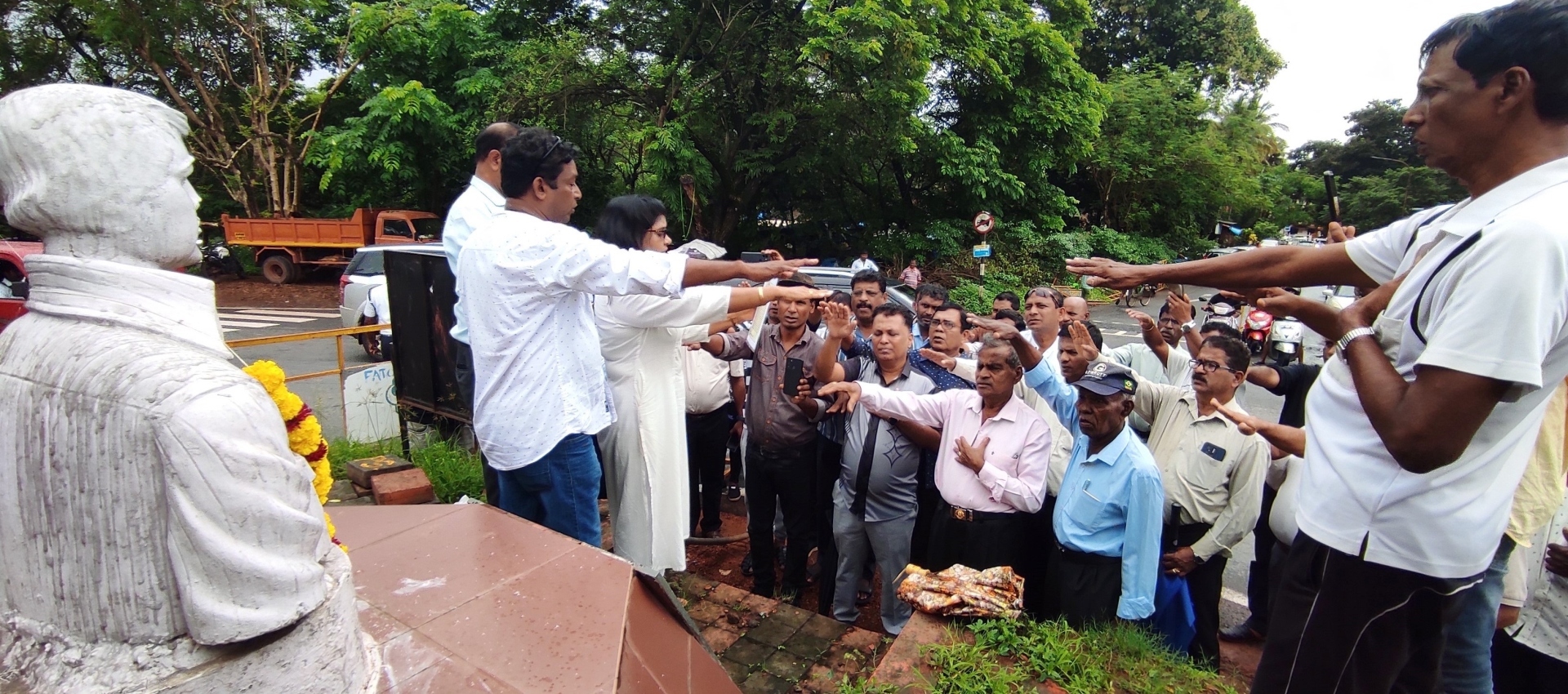Multilingual approaches means one doesn't need to pit one language against the other. Compulsions and impositions are unlikely to be helpful

For a change, the rest of the country seems worked up over controversies of language and education, while Goa is largely quiet over it. At least till now. But this also reminds us of the recent language bitterness in Goa, and the unresolved issues that have been hastily and hurriedly decided over the past few decades here.
In Goa, our memories go back to the Medium of Instruction imposition in primary schools of the 1990s, the Marathi-versus-Konkani dispute of the 1960s, the imposition of Devanagari over Romi script in the 1980s, and the continuing feeling of being treated unfairly over languages.
Language overlaps with politics. It can clearly divide people. Besides people being divided on communal lines, one of the bane of India has also been the division of people on the basis of language. Both are unfair, unhelpful and lead to losses on all sides.
On the other hand, unfair language policies affect people adversely. Understandably so. When dealing with language, people have issues of cultural identity and preservation at stake. Same is true for education and accessibility. Likewise, language policies have implications for employment and opportunities. Take a look at what Nagari-alone, Marathi-preferred, policies have done to employment in the Goa government sector over the years.
But at the same time, there are also politics involved in language issues. This has to be conceded.
Ashok Row Kavi, later better known as a gay rights campaigner across India, wrote a piece around 1987, in The Week (Cochin). He highlighted the politics in the Goa language agitation then. He put this down to the divisions within the ruling Congress (with the then MGP Opposition playing its own partisan role too). Besides, he explained how two newspaper editors, both from out of State, were stoking the flames for reasons of their own.
Language wars can simultaneously be about imposition or a language, script or dialect. Or about resistance. As noted above, these can be connected with electoral politics. Goa's case has amply shown the issue of media amplification. Some linguistic groups are made to feel marginalised based on past history too.
Today, the National Education Policy has triggered controversies over language. In Goa, the three language policy is in place. But the State policy could get shaken by the Central, New Delhi-crafted policy. This could happen both in terms of which languages can be chosen, and upto what level these would need to be studied.
Should a very internationally-focussed globalised region like Goa turn its back on foreign language? If English is the only foreign language that all opt for, what happens to the others? How many students (and their parents) would like to have studies done in Indian languages even at the higher levels of education? Will this benefit students' access, or only penalise them, and block their access to opportunity.
Let's not forget: opportunity, in small Goa, depends on international windows. Our students should be studying more foreign languages, not less. And, isn't the artificial distinction between 'foreign' and 'Indian' languages a bit unrealistic? Someone called English a 'Bharatiya Bhasha'.
Recently, the topic of how to implement higher education topics, say Economics or Physics, was focussed on at a seminar. The complications that could come about were recognised by educationists. Politicians might not worry too much about this; after all, they don't have to work on the implementation.
As young students in primary school, I recall how confused we were when both Marathi and Nagari Konkani were introduced to us, at around the same time. We found it hard to distinguish between the two texts. Later on, some like me felt it was a blessing to study more languages, even though the element of compulsion was unfair and unneeded.
Much later, in the 1990s, a teachers' labour dispute was converted into a policy where only the 'mother tongue' was encouraged in primary schools. Other schools were not given the space to grow. This is Goa's troubled history with languages.
Did this mix of politics and language help Goa? Apart from damaging a generation of students, it clearly led to a dislike for the enforced regional language. Today, Konkani and Marathi are probably worse off than when parents were opting for the same voluntarily.
In a word, language is complex. Decisions over these need to be taken in the best interest of all. There should be enough leeway for those facing a squeeze. Given Goa's multi-lingual approach, this is indeed a challenge, which needs to be faced. If we want to take the easy way out, we can pretend, of course, that it doesn't exist.
Language issues are neither entirely fake nor entirely genuine. At one level, there's real concern about language rights, representation and accessibility. But linguistic conflicts are also kept alive artificially for political mileage at times, not actual need.
In such a situation, tolerance can help. Multilingual approaches means one doesn't need to pit one language against the other. Compulsions and impositions are unlikely to be helpful.
We're fighting over three-language or two-language formulas; but let's admit the more languages we know, the better it is. These cannot be forced on a reluctant population, at gunpoint. Education in the mother tongue is helpful, but don't push script and dialect uniformity while doing this.
Language policies should be decided at decentralised levels. One village may not have the same demographic make-up as its neighbouring village. Script equality is needed. In languages like Konkani, both Nagari and Roman scripts should be backed, instead of playing favourites.
Language can be a unifier; but India's linguistic diversity needs to be accepted as well.